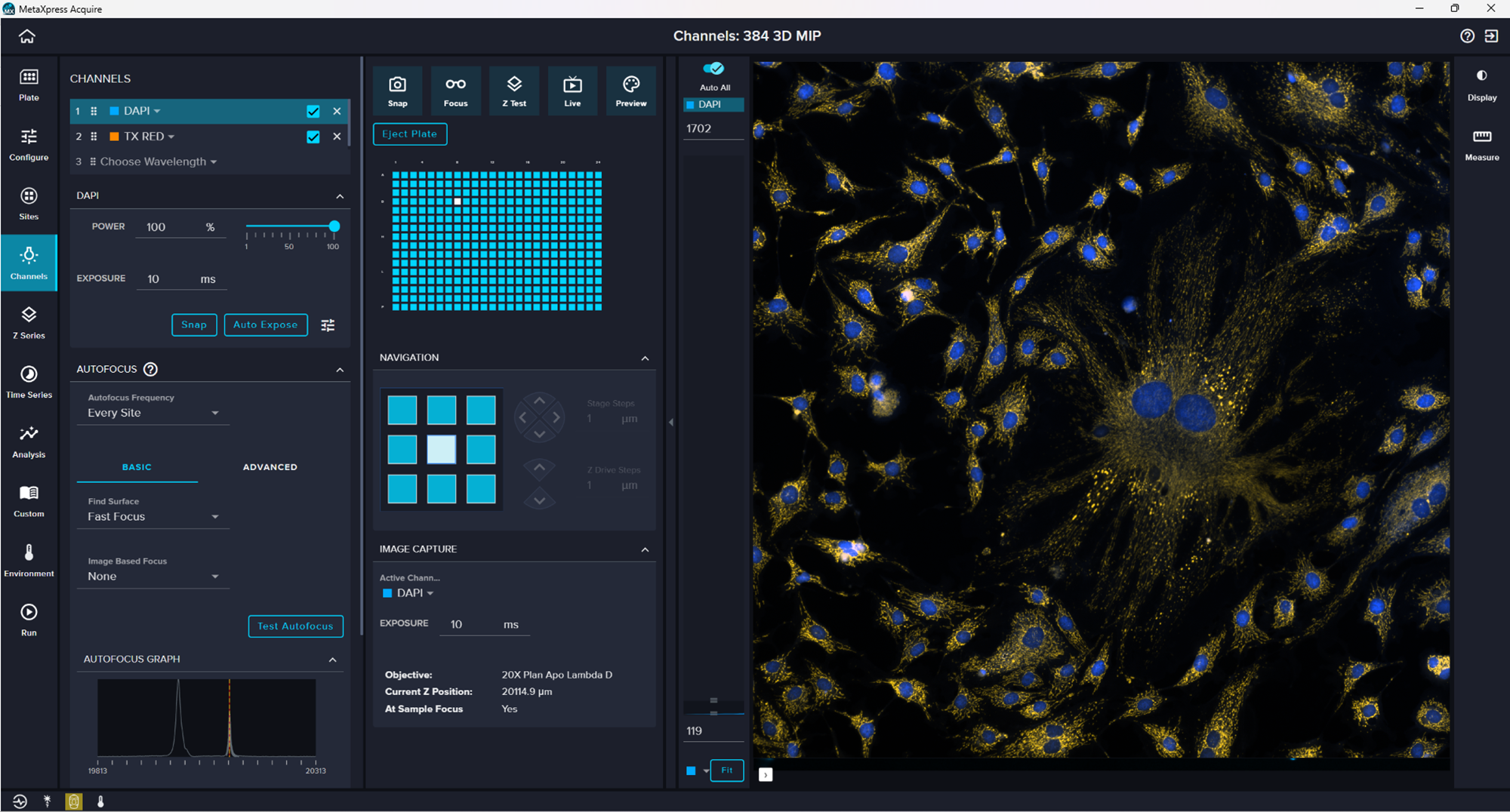Traditional imaging platforms are often constrained by sluggish acquisition speeds, low signal-to-background ratios, and inefficient data administration, which reduces their usefulness in high-throughput screening.

Image Credit: Molecular Devices
Molecular Devices developed the ImageXpress® HCS.ai High-Content Screening System to address these restrictions, which features completely new hardware and software.
Improvements to x, y, and z stage movement and autofocus versatility result in increased throughput. The new cutting-edge optical light path, which includes optimized light sources and a higher quantum efficiency camera, means shorter exposure times, less background, and a better signal-to-noise ratio.
This scientific poster presents three test examples that show how the HCS.ai system's intuitive software interface facilitates a smooth and efficient workflow from setup to analysis.
Download the Poster
About Molecular Devices UK Ltd 
Molecular Devices is one of the world’s leading providers of high-performance life science technology. We make advanced scientific discovery possible for academia, pharma, and biotech customers with platforms for high-throughput screening, genomic and cellular analysis, colony selection and microplate detection. From cancer to COVID-19, we've contributed to scientific breakthroughs described in over 230,000 peer-reviewed publications.
Over 160,000 of our innovative solutions are incorporated into laboratories worldwide, enabling scientists to improve productivity and effectiveness – ultimately accelerating research and the development of new therapeutics. Molecular Devices is headquartered in Silicon Valley, Calif., with best-in-class teams around the globe. Over 1,000 associates are guided by our diverse leadership team and female president that prioritize a culture of collaboration, engagement, diversity, and inclusion.
To learn more about how Molecular Devices helps fast-track scientific discovery, visit www.moleculardevices.com.
Sponsored Content Policy: News-Medical.net publishes articles and related content that may be derived from sources where we have existing commercial relationships, provided such content adds value to the core editorial ethos of News-Medical.Net which is to educate and inform site visitors interested in medical research, science, medical devices and treatments.